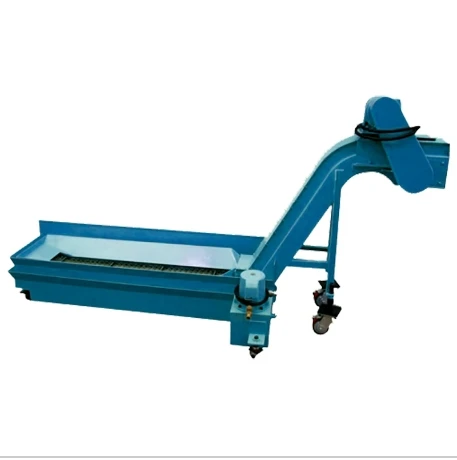CNC Machine with Chip Conveyor for Efficient Material Handling and Processing
The Role of Chip Conveyors in CNC Machines Enhancing Efficiency and Productivity
In today’s manufacturing landscape, precision and efficiency are paramount, particularly in the realm of Computer Numerical Control (CNC) machining. As CNC machines increasingly dominate industries such as aerospace, automotive, and medical device manufacturing, the integration of effective chip management systems has become crucial. Among these systems, chip conveyors play an essential role in maintaining the operational efficiency of CNC machines.
Understanding CNC Machining and Chip Generation
CNC machining involves the use of computerized controls to operate machine tools, allowing for the precise fabrication of complex parts from various materials, including metals, plastics, and composites. During the machining process, tools remove material from workpieces, generating metal shavings, chips, and debris. The accumulation of these byproducts can lead to several operational issues, including machine downtime, compromised precision, and safety hazards for operators.
The Importance of Chip Conveyors
Chip conveyors are specialized systems designed to transport metal chips and debris away from the machining area to a designated disposal site. Their significance in CNC operations cannot be overstated for several reasons
1. Uninterrupted Machining Operations By effectively removing chips from the machining area, chip conveyors ensure that CNC machines can operate without interruption. A clean work area allows for continuous machining processes, leading to increased productivity and reduced cycle times.
2. Improved Tool Longevity Excessive chip accumulation can lead to tool wear and tear, necessitating more frequent replacements and increasing operational costs. Chip conveyors minimize contact between tools and chips, thereby extending tool life and maintaining precision.
3. Enhanced Part Quality Chips left on a workpiece can affect the quality of the finished product. They may cause surface imperfections or affect tolerance levels. By ensuring that chips are promptly removed, chip conveyors help maintain high-quality standards in manufactured parts.
4. Operator Safety An environment cluttered with metal chips poses safety risks, such as slips, falls, and injuries from sharp debris. Chip conveyors help keep work areas clean and organized, contributing to a safer workplace for operators.
Types of Chip Conveyors
chip conveyor cnc machine

Various types of chip conveyors are utilized in CNC operations, each designed to handle specific types of chips and materials
- Scraper Conveyors These conveyors use a series of plates or strips to scrape chips from the machine and transport them to a collection area. They are effective for handling large, bulky chips generated during machining processes.
- Magnetic Conveyors Ideal for ferrous chips, magnetic conveyors use magnets to attract and transport chips away from the machine. They are particularly useful in steel machining operations.
- Auger Conveyors These employ a rotating helical screw to move chips. Auger conveyors can efficiently handle wet chips and are often used in applications where fluids are involved in the machining process.
- Belt Conveyors These consist of a continuous loop of material that moves chips from the machine to a disposal area. Belt conveyors are versatile and can handle various chip sizes and shapes.
The Future of Chip Management in CNC Machining
As technology advances, the role of chip conveyors in CNC machining is expected to evolve. Innovations such as smart sensors and automation will likely enhance the functionality of chip conveyors, allowing for real-time monitoring and more efficient chip management. Integrating IoT (Internet of Things) technology could lead to predictive maintenance and operational insights, optimizing performance and reducing downtime.
Moreover, as sustainability becomes a more significant focus in manufacturing, the option to recycle chips through efficient conveying systems will likely gain interest. Many industries are looking to reclaim valuable materials from chips, further enhancing the importance of reliable chip conveyor systems.
Conclusion
In conclusion, chip conveyors are an integral component of modern CNC machining operations. They not only facilitate uninterrupted and efficient machining processes but also contribute to the overall quality of parts, extend tool life, and ensure a safer working environment. As the manufacturing sector continues to evolve, the importance of effective chip management through advanced conveyor systems will only grow, affirming their place as essential tools in the quest for efficiency and excellence in manufacturing.








